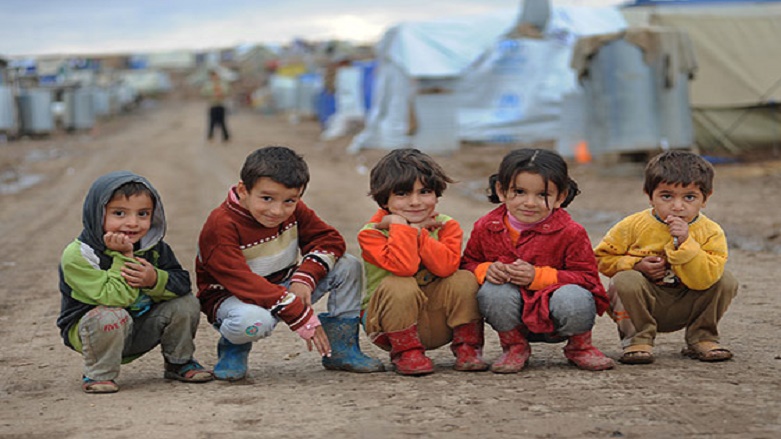KRG Economic Crisis: the Humanitarian Dimension

Iraqi Kurdistan is experiencing a severe economic crisis. A senior delegation from the Kurdistan Regional Government (KRG), led by Dr. Fouad Hussein, Chief of Staff to the President of the Kurdistan Region, spent the past week in the United States detailing precisely that to government officials, policy experts, and the media. KRG delegates received a warm welcome and a sympathetic hearing as the Kurdish case is indeed compelling.
The economic crisis needs addressing now, and Kurdish leaders are looking to their friends in the United States and elsewhere for much-needed assistance. In these meetings, the delegation stressed the potentially extreme consequences of failing to address these problems quickly. As KRG-USA Representative, Bayan Sami Abdul Rahman told K24, this is not a matter that can wait until the next U.S. fiscal year, adding that the Kurdish leadership has no expectation that Baghdad will be part of the solution.
The crisis gradually unfolded in early 2014 after Baghdad cut off most of the funds. That problem became compounded by two subsequent events, each of which would have strained the resources of any state in the region. In the summer of 2014, Da’esh (Islamic State) burst on the scene, and through its brutality, created a tidal wave of traumatized victims. The collapse of oil prices—from $100 per barrel in July 2014 to less than $30 per barrel today—is the third blow.
Fighting Da’esh is expensive. The Kurds are the most effective fighting force against the brutal terrorist organization, but $2 billion a year is required to pay for the Peshmerga’s military needs and salaries, as another member of the delegation, Head of the KRG Department of Foreign Relations, Falah Mustafa Bakir, explained. The KRG does not currently have the money to cover those salaries, and many Peshmerga are owed months of back pay. This fact is particularly significant, as Washington expects them to play a crucial role in liberating Mosul, Da’esh's Iraq headquarters.
The influx of civilians fleeing Da’esh’s brutal aggression is another tremendous burden. In August 2014, as the crisis exploded, Prime Minister Nechirvan Barzani announced the KRG’s position, “The Kurdish government will do all in its power to help the refugees and provide for them what they need.” But it is clear that alone, the KRG cannot address the needs of all those seeking safety in Iraqi Kurdistan.
Refugees and Internally Displaced Persons (IDPs) now number 1.8 million and constitute roughly 30 percent of the population within the Kurdistan Region. By comparison, Turkey, a country of 75 million, hosts some 2.5 million Syrian refugees. Recently, the European Union announced that it will provide Turkey three billion Euros ($3.2 billion) to support refugees there. Importantly, as a state, Ankara can appeal to institutions like the International Monetary Fund for financial assistance. However, because the KRG is not a state, applying for IMF funds is not an option.
Moreover, there is a crucial distinction between refugees—those who flee their country to another—and IDPs—those who flee one part of their country to another. International organizations primarily orient toward caring for refugees. The Kurdistan Region hosts some 300,000 Syrian refugees and the U.N. High Commissioner for Refugees (UNHCR) addresses their basic needs. However, responsibility for caring for IDPs—a far larger population of 1.5 million—falls upon the KRG.
Hemin Hawrami, head of the Kurdistan Democratic Party (KDP) Foreign Relations Office, explained to K24 that there are 38 camps for refugees and IDPs within the KRG. Of these, 80 percent are in Dohuk and Erbil provinces, placing additional strain on local communities. Mr. Hawrami also explained that nearly all Christians who had been living in Mosul—one of the world’s oldest Christian communities, dating back almost 2,000 years—have fled to the Kurdistan Region, or have emigrated abroad.
The KRG delegation sought to impress on their American hosts the potential dangers arising from the financial crisis: political and economic instability; the weakening of the Peshmerga; and the flight of even more refugees to Europe. It is always easier and cheaper to deal with problems before they reach crisis proportions. One can only hope that U.S. officials will take action to do so.
Laurie Ann Mylroie, Ph.D., taught at Harvard University and the U.S. Naval War College. Most recently, she served as a cultural advisor to the U.S. military in Afghanistan.
